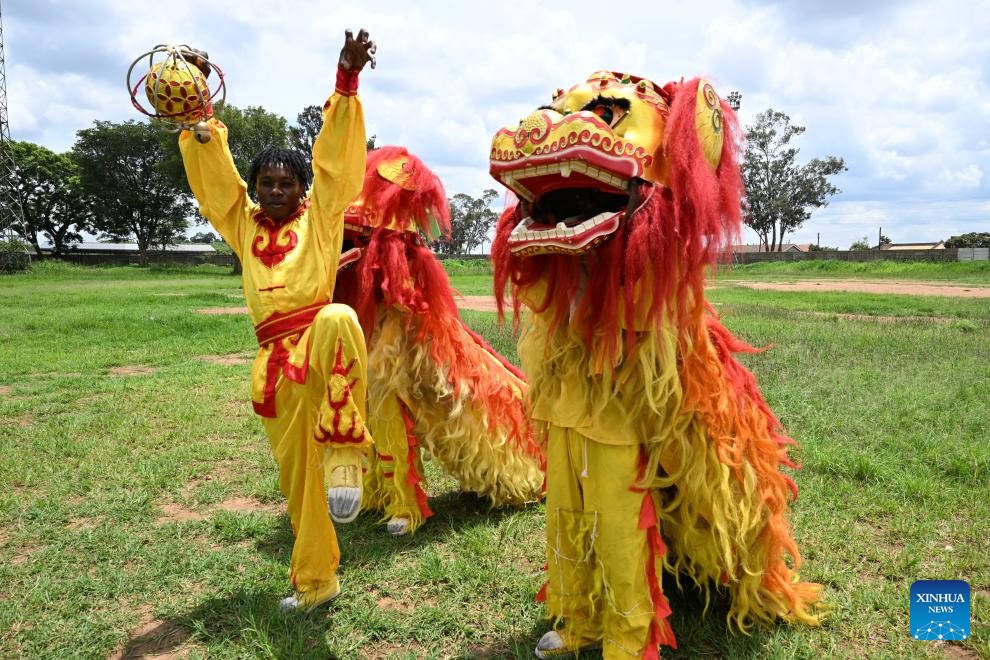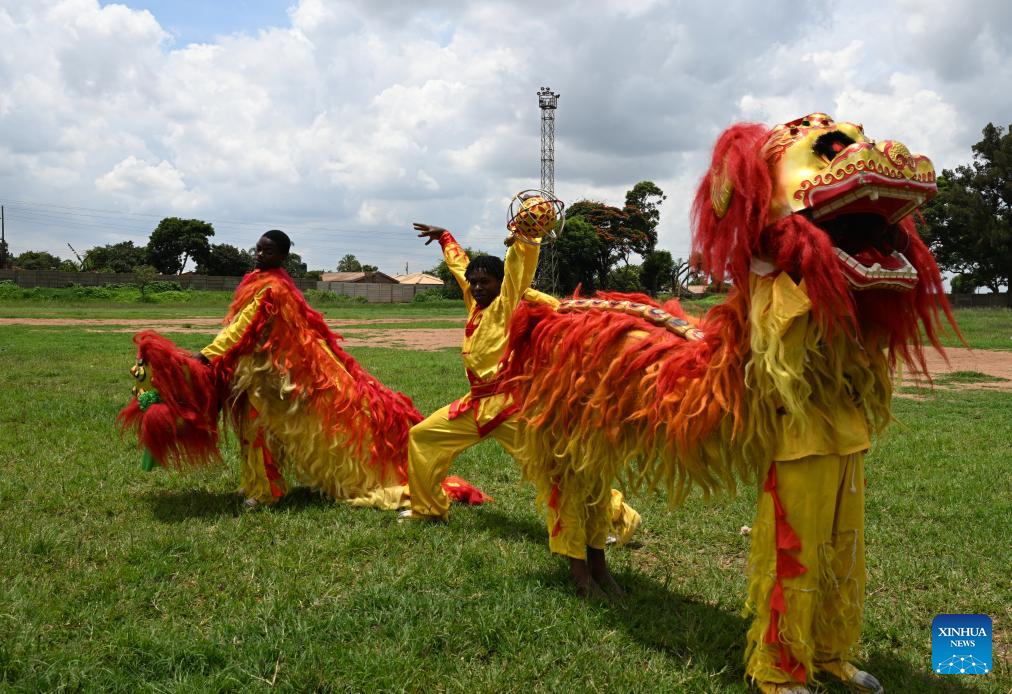
Members of Blackstar Acrobatics practice Chinese lion dance in Harare, Zimbabwe, Jan. 14, 2025. (Xinhua/Xu Zheng)
by Xu Zheng and Tafara
HARARE, Jan. 19 (Xinhua) -- Tichaona Zimuto, a 34-year-old professional acrobat in Zimbabwe, has never thought that he would shoot to stardom among the Chinese community in a Chinese lion dance costume.
About a week ago, a group of young Zimbabwean performers called Blackstar Acrobatics, led by Zimuto, charmed an audience of Chinese expatriates in the southern African country and locals with a colorful and rhythmic performance of the lion dance during a Spring Festival celebration in the capital of Harare.
The audience, especially the Chinese, flocked to take photos with them on and off stage.
"Look! They are Zimbabwean lion dance performers, and they are bringing good luck to my stand," posted a Chinese restaurant owner who sold snacks during the celebration on WeChat, a popular Chinese social media platform.
Originating in ancient China, the Chinese lion dance combines dance, music, and martial arts. During the dance, the performers mimic a lion's movement in lion costumes. This captivating art form is one of the most important traditions of the Chinese Spring Festival, which falls on Jan. 29 this year.
Zimuto and friends founded the team in 2018, and most of the teammates are now in their 20s. They knew little about the lion dance until late 2024, when a local friend recommenced it.
"We used to see it in movies and short video clips online, so it has been a great experience doing this lion dance," said Bruce Gumbo, another performer.
The group of Zimbabwean youth set about practicing from scratch, following various video clips in an open space in western Harare's Dzivarasekwa suburb. With their advanced acrobatic skills, they quickly picked up the dance moves.
Even with limited rehearsal time, the team managed to put smiles on the faces of the audience with their electrifying performance at the Spring Festival event.
"Performing lion dance can be challenging, but it can also give you a sense of accomplishment," Zimuto said. "I like lion dance and want to learn more about it."
In Zimbabwe, lions are not only a symbol of power and superiority, but also a popular ecotourism attraction in the country's numerous game parks. This makes the lion dance interesting for Zimbabwean audiences.
"When I was wearing the lion dance costume, I just felt excited. I just felt great, something special; I just felt like a lion, a real lion," Zimuto said. "I want to go to China to perform if there is an opportunity or a chance for us."
In December last year, the United Nations Educational, Scientific and Cultural Organization inscribed "Spring Festival, social practices of the Chinese people in celebration of the traditional new year" on the Representative List of the Intangible Cultural Heritage of Humanity.
According to Zimuto and his team, participating in cultural events such as the Spring Festival satisfies his curiosity about Chinese culture, and engaging in cultural activities such as the lion dance is an effective way of bridging Chinese and Zimbabwean cultures through arts.
"From now on, you can either call us Blackstar Acrobatics or Lion Dance Troupe," Zimuto said. ■

Members of Blackstar Acrobatics practice Chinese lion dance in Harare, Zimbabwe, Jan. 14, 2025. (Xinhua/Xu Zheng)



